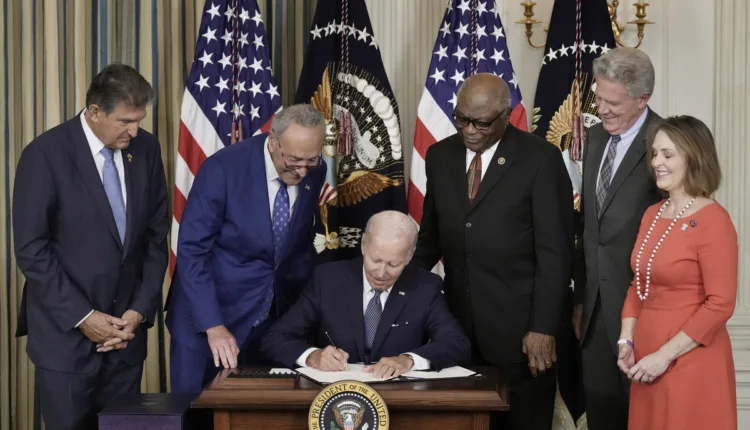
Diminished Chevron doctrine may weaken Biden’s climate law
TL/DR –
The Supreme Court is expected to rule on the Chevron doctrine, a legal tool that allows courts to give leeway to agencies’ interpretations of their authority under ambiguous statutes, by early summer. Many believe the court will revoke the doctrine, which would impact the Biden administration’s ability to defend the Inflation Reduction Act, a major climate legislation, against legal challenges. The Inflation Reduction Act serves as a funding mechanism, providing over $270 billion in tax credits for clean energy technologies.
Major U.S. Climate Legislation Faces Legal Challenges
As significant U.S. climate legislation spearheaded by the Biden administration is set to roll out, the Supreme Court seems prepared to revoke a legal tool previously anticipated to protect federal agencies against legal challenges. This tool, known as the Chevron doctrine, may no longer shield the Inflation Reduction Act (IRA).
While the court isn’t expected to finalize the Chevron doctrine’s fate until summer, justices expressed deep skepticism during last week’s oral arguments. This doctrine was once a bulwark for federal agencies’ reasonable interpretations of their authority under ambiguous statutes.
Implications for the Inflation Reduction Act
The Inflation Reduction Act, passed in August 2022, will likely face disputes in federal courts, particularly concerning the interpretation of federal government powers under the new climate law, according to Kirti Datla, director of strategic legal advocacy for Earthjustice.
The IRA is a comprehensive legislation aimed at boosting consumer purchasing power by addressing the federal budget deficit, reducing prescription drug costs, and promoting clean energy investments. It primarily serves as a funding mechanism, providing over $270 billion in tax credits for technologies such as electric vehicles and carbon sequestration.
However, the implementation of these tax credits by federal agencies has already attracted criticism and litigation threats, claiming the Biden administration is overstepping its authority under the IRA.
Declining Use of the Chevron Doctrine
The Chevron doctrine, once a common defense tool in court, has decreased in popularity among conservative jurists. As a result, government lawyers have shifted their approach, although it is still occasionally employed.
Regulations crafted under the Inflation Reduction Act could face challenges if the Supreme Court overturns the Chevron doctrine, Datla warned.
Clear Directives Under the Inflation Reduction Act
To defend a rule under the Chevron doctrine, an agency must prove the authorizing statute’s language was unclear. Some aspects of the IRA, however, are not open to interpretation. For example, the bill unequivocally instructed the Interior Department to reinstate a large oil lease sale in the Gulf of Mexico.
Despite the IRA being a new statute, it builds upon existing tax provisions and interpretations of older federal laws, including advisories from the EPA to the Treasury.
Anticipated Legal Challenges
However, provisions of the Inflation Reduction Act requiring agencies to make regulatory interpretations about tax credits are likely to face litigation. Decisions by the Treasury, seen as “very assertive interpretations” of the IRA, are particularly vulnerable, highlighted Rich Powell, CEO of ClearPath.
Alternatives to the Chevron Doctrine
If the Chevron doctrine is overruled, other legal defenses such as the Administrative Procedure Act will likely come into play for federal agencies. Some Supreme Court justices seem inclined to replace the Chevron doctrine with the Skidmore deference, which only defers to agencies’ interpretations when they’re persuasive. This change would introduce an extra layer of scrutiny for defense of rules under the Inflation Reduction Act.
—
Read More US Economic News
